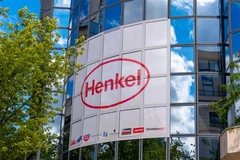Next-gen can coatings: Sherwin-Williams talks metal industry future and European BPA ban

29 Mar 2023 --- Sherwin-Williams has released a white paper outlining the European metal packaging industry and how it is predicted to grow as recycling requirements are introduced. New regulations from the European Green Deal, Circular Economy Action Plan and Packaging and Packaging Waste Regulation (PPWR) are causing the European metal industry to brace for change.
Sherwin-Williams says its metal can coatings ensure food safety, extend shelf life and reduce food spoilage and waste. Its newest valPure V70 is Bisphenol A (BPA) free. The company created the coating without BPA as legislation is expected to bar the use of the ingredient and consumers’ hesitance to the chemical is increasing.

CanTech International estimates that Europeans use up to 50 billion cans yearly for water, soft drinks, alcohol and beer. Over 70% of all aluminum cans are recycled globally, making them one of the most recycled packaging types on the planet, says the paper.
“The paper demonstrates why metal cans are favored by the market due to their infinite recyclability and how the [environmental] sustainability benefits of the metal can would not be possible without can coatings,” Sarah Dubail, senior regulatory affairs specialist for Sherwin-Williams Packaging Coatings, tells PackagingInsights.
“At a time when the EU Commission is setting clear targets to reduce packaging waste in Europe, our white paper explains how coatings can support these goals.”
 The global recycling rates on average between aluminum, PET and glass.Expected aluminum packaging regulations
The global recycling rates on average between aluminum, PET and glass.Expected aluminum packaging regulations
As the EU strives to reach ambitious goals enshrined within the European Green Deal and the Circular Economy Action Plan, “policymakers and regulators continue to push for the prioritization of a sustainable packaging industry,” writes the paper.
Europe has also set a mission to achieve a sustainable packaging supply chain in the proposed PPWR. Sherwin-Williams says the PPWR will significantly reduce packaging waste in Europe by 2040 by encouraging reuse and recycling.
Under the proposal, EU member states would be required to reduce all packaging waste by 5% by 2030, 10% by 2035 and 15% by 2040. EU legislators are working to finalize the legislation by early 2024.
By 2030, countries in the EU need to ensure that at least 60% of all aluminum packaging is recycled. Other unreleased targets are likely to be set for the following decades, culminating in the overall goal of a climate-neutral European economy by 2050.
Aluminum’s recyclability
Aluminum, the primary metal used in beverage cans, is infinitely recyclable without losing its properties.
“The metal can is critical to support a [environmentally] sustainable packaging supply chain in Europe and achieve circularity within the F&B, household and personal care industries,” says Sherwin-Williams.
Although recycling systems differ from country to country, the process for recycling aluminum cans is well established. It is estimated that used cans can be transformed into new ones in two months. Sherwin-Williams points out that aluminum cans outperform PET and glass regarding energy usage.
Sherwin-Williams pledged in the paper to continue innovating to ensure that its can coating technologies meet Europe’s future environmentally sustainable packaging requirements and support a fully circular European economy.
Coatings to prevent food waste
According to Metal Packaging Europe, 98 billion units of metal packaging are manufactured each year in Europe for the F&B, health and beauty, household and industrial markets, representing 15% of the European packaging market.
The white paper cites that 75% of new beverages are launched in cans. It continues that can coating technologies allow brands to reduce their reliance on plastic packaging and switch to metal, increasing the recyclability and sustainability of their product range.Can coatings keep the metal from degrading and the inside product from spoiling.
Metal packaging and aluminum cans can only provide food storage and waste prevention benefits with innovative can coating technologies. The coatings protect the integrity of the can and provide a protective barrier for the product.
Without coatings, cans are susceptible to product spoilage and metal corrosion. Can coatings are generally formulated to ensure compatibility with hundreds of different product requirements and do not impact the ability of the can to be recycled.
Shifting away from BPA
The most common can coating technologies are epoxy, polyester or acrylic based. In recent years the can coating industry has been challenged to develop technologies that do not contain BPA – a key monomer used in most epoxy coating technologies – based on rising negative views of the chemical.
The European Food Safety Authority is considering a proposal that seeks to limit the use of BPA-based products in food contact materials, converting traditional epoxy coatings to newer options across Europe.
“Sherwin-Williams has been working for more than a decade to enable the switch to non-BPA coatings that perform as well as traditional epoxy coatings,” says Dubail.
Sherwin-Williams valPure V70 technology is a non-BPA epoxy can coating. It delivers the industry standard performance of epoxy coatings, providing application, can fabrication properties and product protection. The company asserts that its valPure V70 delivers a long-term solution for the future of sustainable packaging and the circular economy.
“The valPure V70 provides a long-term solution for one of the world’s most sustainable forms of packaging, contributing to the ambition of building a fully circular economy,” she concludes.
By Sabine Waldeck











